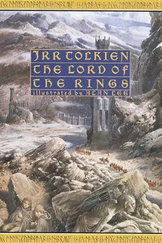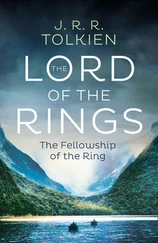J Tolkien - The Silmarillon
Здесь есть возможность читать онлайн «J Tolkien - The Silmarillon» весь текст электронной книги совершенно бесплатно (целиком полную версию без сокращений). В некоторых случаях можно слушать аудио, скачать через торрент в формате fb2 и присутствует краткое содержание. Год выпуска: 1985, ISBN: 1985, Издательство: Del Rey, Жанр: Эпическая фантастика, на английском языке. Описание произведения, (предисловие) а так же отзывы посетителей доступны на портале библиотеки ЛибКат.
- Название:The Silmarillon
- Автор:
- Издательство:Del Rey
- Жанр:
- Год:1985
- ISBN:0345325818
- Рейтинг книги:5 / 5. Голосов: 1
-
Избранное:Добавить в избранное
- Отзывы:
-
Ваша оценка:
- 100
- 1
- 2
- 3
- 4
- 5
The Silmarillon: краткое содержание, описание и аннотация
Предлагаем к чтению аннотацию, описание, краткое содержание или предисловие (зависит от того, что написал сам автор книги «The Silmarillon»). Если вы не нашли необходимую информацию о книге — напишите в комментариях, мы постараемся отыскать её.
Those interested in J.R.R. Tolkien's Middle Earth should not be without this grand volume that tells the tragic tale of the struggle for control of the Silmarils, a struggle that would determine the history of the world long before the War of the Ring.
The Silmarillon — читать онлайн бесплатно полную книгу (весь текст) целиком
Ниже представлен текст книги, разбитый по страницам. Система сохранения места последней прочитанной страницы, позволяет с удобством читать онлайн бесплатно книгу «The Silmarillon», без необходимости каждый раз заново искать на чём Вы остановились. Поставьте закладку, и сможете в любой момент перейти на страницу, на которой закончили чтение.
Интервал:
Закладка:
All who dwelt in Aman were filled with wonder and delight at the work of Feanor. And Varda hallowed the Silmarils, so that thereafter no mortal flesh, nor hands unclean, nor anything of evil will might touch them, but it was scorched and withered; and Mandos foretold that the fates of Arda, earth, sea, and air, lay locked within them. The heart of Feanor was fast bound to these things that he himself had made.
Then Melkor lusted for the Silmarils, and the very memory of their radiance was a gnawing fire in his heart.
From that time forth, inflamed by this desire, he sought ever more eagerly how he should destroy Feanor and end the friendship of the Valar and the Elves; but he dissembled his purposes with cunning, and nothing of his malice could yet be seen in the semblance that he wore. Long was he at work, and slow at first and barren was his labour. But he that sows lies in the end shall not lack of a harvest, and soon he may rest from toil indeed while others reap and sow in his stead. Ever Melkor found some ears that would heed him, and some tongues that would enlarge what they had heard; and his lies passed from friend to friend, as secrets of which the knowledge proves the teller wise. Bitterly did the Noldor atone for the folly of their open ears in the days that followed after.
When he saw that many leaned towards him, Melkor would often walk among them, and amid his fair words others were woven, so subtly that many who heard them believed in recollection that they arose from their own thought. Visions he would conjure in their hearts of the mighty realms that they could have ruled at their own will, in power and freedom in the East; and then whispers went abroad that the Valar had brought the Eldar to Aman because of their jealousy, fearing that the beauty of the Quendi and the makers' power that Iluvatar had bequeathed to them would grow too great for the Valar to govern, as the Elves waxed and spread over the wide lands of the world.
In those days, moreover, though the Valar knew indeed of the coming of Men that were to be, the Elves as yet knew naught of it; for Manwe had not revealed it to them. Bat Melkor spoke to them in secret of Mortal Men, seeing how the silence of the Valar might be twisted to evil. Little he knew yet concerning Men, for engrossed with his own thought in the Music he had paid small heed to the Third Theme of Iluvatar; but now the whisper went among the Elves that Manwe held them captive, so that Men might come and supplant them in the kingdoms of Middle-earth, for the Valar saw that they might more easily sway this short-lived and weaker race, defrauding the Elves of the inheritance of Iluvatar. Small truth was there in this, and little have the Valar ever prevailed to sway the wills of Men; but many of the Noldor believed, or half believed, the evil words.
Thus ere the Valar were aware, the peace of Valinor was poisoned. The Noldor began to murmur against them, and many became filled with pride, forgetting how much of what they had and knew came to them in gift from the Valar. Fiercest burned the new flame of desire for freedom and wider realms in the eager heart of Feanor; and Melkor laughed in his secrecy, for to that mark his lies had been addressed, hating Feanor above all, and lusting ever for the Silmarils. But these he was not suffered to approach; for though at great feasts Feanor would wear them, blazing on his brow, at other times they were guarded close, locked in the deep chambers of his hoard in Tirion. For Feanor began to love the Silmarils with a greedy love, and grudged the sight of them to all save to his father and his seven sons; he seldom remembered now that the light within them was not his own.
High princes were Feanor and Fingolfin, the elder sons of Finwe, honoured by all in Aman; but now they grew proud and jealous each of his rights and his possessions. Then Melkor set new lies abroad in Eldamar, and whispers came to Feanor that Fingolfin and his sons were plotting to usurp the leadership of Finwe and of the elder line of Feanor, and to supplant them by the leave of the Valar; for the Valar were ill-pleased that the Silmarils lay in Tirion and were not committed to their keeping. But to Fingolfin and Finarfin it was said: 'Beware! Small love has the proud son of Miriel ever had for the children of Indis. Now he has become great, and he has his father in his hand. It will not be long before he drives you forth from Tuna!'
And when Melkor saw that these lies were smouldering, and that pride and anger were awake among the Noldor, he spoke to them concerning weapons; and in that time the Noldor began the smithying of swords and axes and spears.
Shields also they made displaying the tokens of many houses and kindreds that vied one with another; and these only they wore abroad, and of other weapons they did not speak, for each believed that he alone had received the warning.
And Feanor made a secret forge, of which not even Melkor was aware; and there he tempered fell swords for himself and for his sons, and made tall helms with plumes of red. Bitterly did Mahtan rue the day when he taught to the husband of Nerdanel all the lore of metalwork that he had learned of Aule.
Thus with lies and evil whisperings and false counsel Melkor kindled the hearts of the Noldor to strife; and of their quarrels came at length the end of the high days of Valinor and the evening of its ancient glory. For Feanor now began openly to speak words of rebellion against the Valar, crying aloud that he would depart from Valinor back to the world without, and would deliver the Noldor from thraldom, if they would follow him.
Then there was great unrest in Tirion, and Finwe was troubled; and he summoned all his lords to council. But Fingolfin hastened to his halls and stood before him, saying: 'King and father, wilt thou not restrain the pride of our brother, Curufinwe, who is called the Spirit of Fire, all too truly? By what right does he speak for all our people, as if he were King? Thou it was who long ago spoke before the Quendi, bidding them accept the summons of the Valar to Aman. Thou it was that led the Noldor upon the long road through the perils of Middle-earth to the light of Eldamar. If thou dost not now repent of it, two sons at least thou hast to honour thy words.'
But even as Fingolfin spoke, Feanor strode into the chamber, and he was fully armed: his high helm upon his head, and at his side a mighty sword. 'So it is, even as I guessed,' he said. 'My half-brother would be before me with my father, in this as in all other matters.' Then turning upon Fingolfin he drew his sword, crying: 'Get thee gone, and take thy due place!'
Fingolfin bowed before Finwe, and without word or glance to Feanor he went from the chamber. But Feanor followed him, and at the door of the king's house he stayed him; and the point of his bright sword he set against Fingolfin's breast 'See, half-brother!' he said. 'This is sharper than thy tongue. Try but once more to usurp my place and the love of my father, and maybe it will rid the Noldor of one who seeks to be the master of thralls.'
These words were heard by many, for the house of Finwe was in the great square beneath the Mindon; but again Fingolfin made no answer, and passing through the throng in silence he went to seek Finarfin his brother.
Now the unrest of the Noldor was not indeed hidden from the Valar, but its seed had been sown in the dark; and therefore, since Feanor first spoke openly against them, they judged that he was the mover of discontent, being eminent in self-will and arrogance, though all the Noldor had become proud. And Manwe was grieved, but he watched and said no word. The Valar had brought the Eldar to their land freely, to dwell or to depart; and though they might judge departure to be folly, they might not restrain them from it. But now the deeds of Feanor could not be passed over, and the Valar were angered and dismayed; and he was summoned to appear before them at the gates of Valmar, to answer for all his words and deeds. There also were summoned all others who had any part in this matter, or any knowledge of it; and Feanor standing before Mandos in the Ring of Doom was commanded to answer all that was asked of him. Then at last the root was laid bare, and the malice of Melkor revealed; and straightway Tulkas left the council to lay hands upon him and bring him again to judgement. But Feanor was not held guiltless, for he it was that had broken the peace of Valinor and drawn his sword upon his kinsman; and Mandos said to him: 'Thou speakest of thraldom. If thraldom it be, thou canst not escape it; for Manwe is King of Arda, and not of Aman only. And this deed was unlawful, whether in Aman or not in Aman. Therefore this doom is now made: for twelve years thou shall leave Tirion where this threat was uttered. In that time take counsel with thyself, and remember who and what thou art. But after that time this matter shall be set in peace and held redressed, if others will release thee.'
Читать дальшеИнтервал:
Закладка:
Похожие книги на «The Silmarillon»
Представляем Вашему вниманию похожие книги на «The Silmarillon» списком для выбора. Мы отобрали схожую по названию и смыслу литературу в надежде предоставить читателям больше вариантов отыскать новые, интересные, ещё непрочитанные произведения.
Обсуждение, отзывы о книге «The Silmarillon» и просто собственные мнения читателей. Оставьте ваши комментарии, напишите, что Вы думаете о произведении, его смысле или главных героях. Укажите что конкретно понравилось, а что нет, и почему Вы так считаете.












